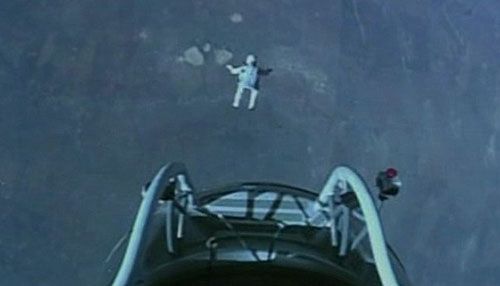If you've been anywhere near the Internet this past week, you've likely been made aware of a record-breaking skydiving attempt that was soon to take place. Well, that happened yesterday, after having been delayed due to bad weather on Tuesday. With this jump, Austrian skydiver Felix Baumgartner, backed by his Red Bull Stratos team, had hoped to break at least three world records. While it may be a couple of days before those are verified, the unofficial results look good.

You can read the rest of our post and discuss here.

You can read the rest of our post and discuss here.

